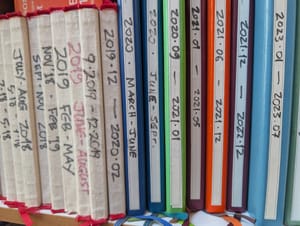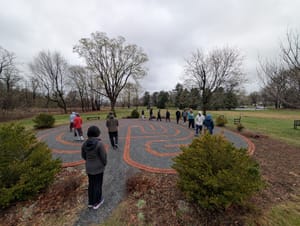Sci fi writer David Brin looks at J.R.R. Tolkien’s Lord of the Rings through the lens of Romanticism vs. the Enlightenment, nostalgia vs. optimism. And he finds Tolkien’s vision, not surprisingly, to be a surprisingly retrograde one. Why is this world, full of strict class and race divisions, kings and serfs, wizards and eternal orders, so appealing? He attributes it to a kind of Romantic backlash, a nostalgia for the order of the past that’s been disrupted by this world’s true rebels: scientists, democrats, technologists.
Brin writes: “Millions of people who live in a time of genuine miracles — in which the great-grandchildren of illiterate peasants may routinely fly through the sky, roam the Internet, view far-off worlds and elect their own leaders — slip into delighted wonder at the notion of a wizard hitchhiking a ride from an eagle. Many even find themselves yearning for a society of towering lords and loyal, kowtowing vassals.” Curious, no?
Later, he invokes a thought experiment: “Ask yourself: “How would Sauron have described the situation?” … Now ponder something that comes through even the party-line demonization of a crushed enemy — this clear-cut and undeniable fact: Sauron’s army was the one that included every species and race on Middle Earth, including all the despised colors of humanity, and all the lower classes. ”
And he concludes: “You are heirs of the world’s first true civilization, arising out of the first true revolution. Take some pride in it. Let’s keep enjoying kings and wizards. But also remember to keep them where they belong. Where they can do little harm. Where they entertain us. In fantasies. ”
Meanwhile, usability wizard Jakob Nielsen points out that in the future, we really will be surrounded by Harry Potter-like magic. “Much of the Harry Potter books’ charm comes from the quirky magic objects that surround Harry and his friends. Rather than being solid and static, these objects embody initiative and activity. This is precisely the shift we’ll experience as computational power moves beyond the desktop into everyday objects. ” He concludes with an exhortation to Web wizards: Don’t harm the Muggles — the ordinary Web users for whom advanced technology really is magical. In other words, keep it simple, keep it usable, and meet their expectations.


